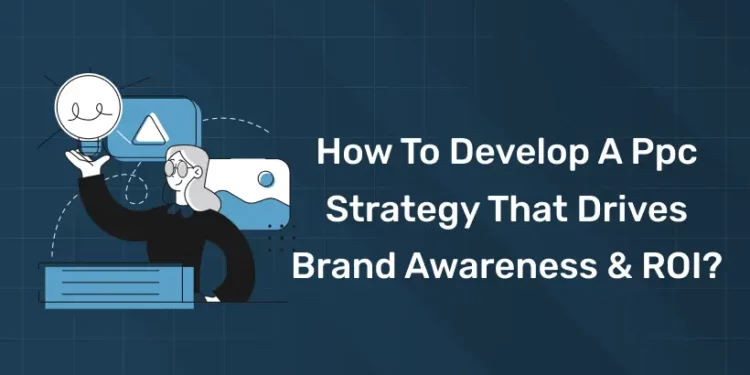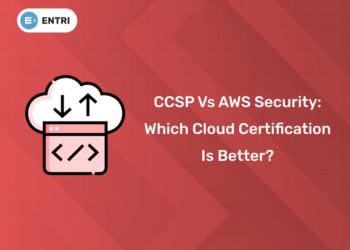Table of Contents
You, in your capacity as a digital marketer, have been tasked by a client with providing marketing support concerning the launch of a novel product or service. An organization is willing to allocate resources when it possesses a clearly defined target demographic. Due to your immediate desire for results, you have opted to implement pay-per-click advertising. PPC advertising, which is also referred to as pay-per-click advertising, is among the most efficient digital marketing strategies. Advertisers are charged a fee for each instance in which their advertisement receives a click-through. This increases both the volume of traffic to your website and the number of conversions. This blog post will focus on the significance and importance of pay-per-click (PPC) campaigns, in addition to the procedures entailed in formulating a PPC strategy.
Discover the Potential of Digital Marketing! Enroll in Entri’s Trial Course Now!
First, What is PPC & How it Works?
Advertisers are obligated to remit payment whenever a user clicks on one of their sponsored links under the “pay-per-click” (abbreviated as “PPC”) model of online advertising. In this process, advertisers submit bids for specific keywords, and the resulting bids determine which ads are displayed on websites or search engines. Paid-per-click (PPC) campaigns are presented to users in response to their keyword queries.
Paid search engine advertisements are a highly effective marketing instrument that organizations of all sizes—including startups and small businesses—can employ. By impeding the dissemination of advertisements, it ensures that they are delivered to their intended audience promptly and efficiently. An additional benefit is that advertisers incur charges solely when users click on their advertisements, rendering it a financially efficient approach to generating website traffic.
Steps To Create PPC Strategy
1: What is the primary goal of SEO (Search Engine Optimization)?
Prior to investing in advertising, it is critical to develop a meticulously planned pay-per-click (PPC) campaign. The following discussion will center on the procedural requirements for developing a pay-per-click (PPC) strategy.
Discover the Potential of Digital Marketing! Enroll in Entri’s Trial Course Now!
1. Set Clear Goals & Budget
In order to establish the objectives of your pay-per-click (PPC) advertising campaign, you must be aware of the desired results. What is the objective, which may be to increase brand awareness, generate leads, or boost sales? Having well-defined objectives will influence your entire pay-per-click (PPC) strategy. Concurrently, you should develop a practical budget that corresponds to your objectives.
2. Do thorough keyword research
Determine which keywords exhibit high performance and are relevant to both your organization and the organizations with which you compete. Employ keyword research tools to ascertain the appropriate keywords, such as Google’s Keyword Planner.
3. Know your audience
Developing a successful pay-per-click (PPC) campaign requires extensive knowledge of the intended audience. By learning the demographics, interests, and online behavior of your audience through extensive research, you can then create advertisements that are as pertinent as possible.
4. Create compelling ads
Develop captivating advertisements that effectively communicate with the intended demographic, emphasizing the unique selling proposition of the advertised product or service. Utilize clear and concise language, and conclude with an engaging appeal for action, such as “For further information, please visit our website” or “Develop your understanding.” It is imperative to ensure that your advertisements are concise and relevant to the specific keywords you intend to target.
5. Utilise ad extensions
By providing additional information, ad extensions such as callouts and links can be used to enhance your advertisements. It enhances the overall efficacy of your advertisements by augmenting their visual appeal and furnishing valuable information to potential customers.
6. Choose your bidding strategy
Select an appropriate bidding method that aligns with your intended objectives. Automated bidding and manual CPC (Cost Per Click) should be utilized in tandem to maximize return on investment (ROI). This will increase your ability to manage your bids. Furthermore, it is critical to consistently assess the efficacy of bids and implement any required modifications.
7. Monitor, Analyse & Modify your campaigns
Utilize analytics tools to monitor the performance of your pay-per-click (PPC) advertising campaign. It is imperative to monitor the cost per conversion, click-through rate (CTR), and conversion rate. Utilizing this data, ascertain which facets of the circumstance require enhancement. Additionally, you must modify your approach to ensure that your campaign remains profitable and fruitful.
8. A/B testing
Employ A/B testing to determine which of multiple ad versions and landing pages is most effective for your intended audience through experimentation. This contributes to the enhancement of your pay-per-click (PPC) campaigns and increases their ROI.
Conclusion
To ensure the effectiveness of a pay-per-click (PPC) strategy, it is critical to establish unambiguous goals, fully grasp the target demographic, and optimize advertising campaigns. You will be able to develop a campaign that outperforms the competition and generates positive returns by adhering to these steps. Collaborate with a formidable digital marketing firm, such as Valueleaf, in order to attain a quantifiable commercial impact. Commence your pay-per-click (PPC) campaign without delay in order to elevate your marketing efforts.
Discover the Potential of Digital Marketing! Enroll in Entri’s Trial Course Now!
FAQs
Why is PPC strategy a crucial component of digital marketing?
A PPC strategy is a blueprint for achieving particular marketing objectives through pay-per-click (PPC) advertising. Digital marketing relies heavily on it due to its capacity to assist organizations in attaining a specific demographic, monitoring progress, and calculating the return on investment (ROI).
Which elements comprise an effective pay-per-click (PPC) strategy?
Establishing explicit goals and objectives, performing exhaustive keyword research, composing persuasive ad copy, selecting the optimal bidding strategy, and diligently monitoring and analyzing campaign performance are fundamental elements of an effective PPC strategy.
As part of my strategy, how can I establish precise objectives and goals for my PPC campaigns?
Determine the advertising objectives prior to establishing clear objectives and goals for your pay-per-click (PPC) campaigns. These objectives may include increasing brand awareness, generating leads, or driving sales. Once you have determined your objectives, set goals that are both specific and measurable.
How does keyword research contribute to the development of an effective PPC strategy?
Crucial to the success of a pay-per-click (PPC) strategy, keyword research identifies the search terms that your target audience employs. By utilizing these targeting keywords, you can guarantee that your advertisements are displayed to individuals who are particularly interested in your products or services.
What budgetary factors should be taken into account when developing a pay-per-click (PPC) strategy?
With the competitiveness of keywords in mind, establish a realistic budget and allocate funds in accordance with campaign priorities.
Discover the Potential of Digital Marketing! Enroll in Entri’s Trial Course Now!











